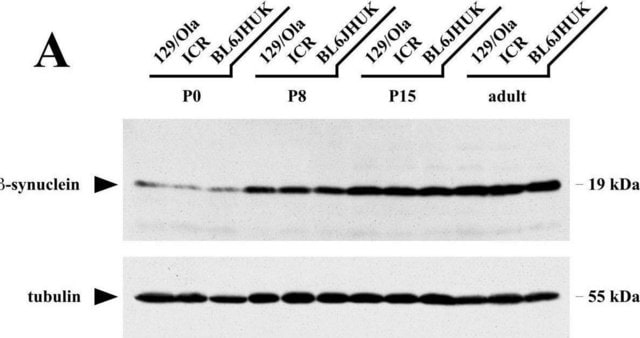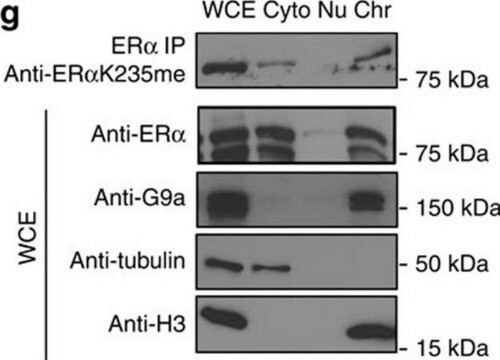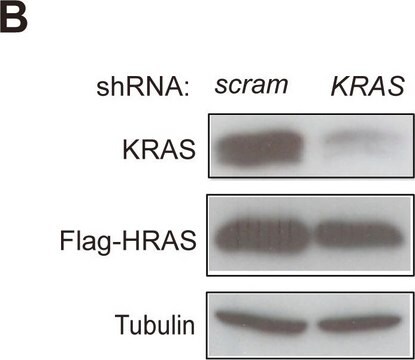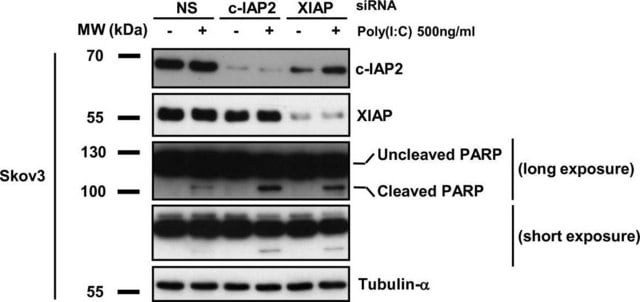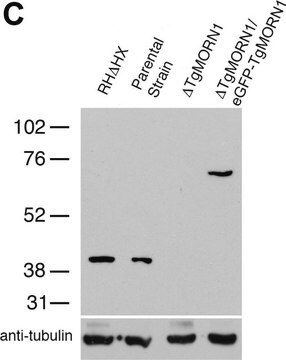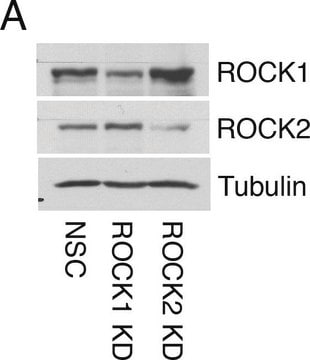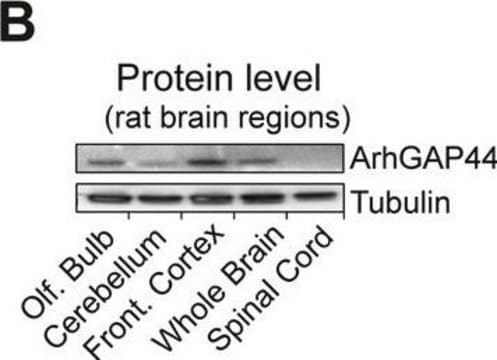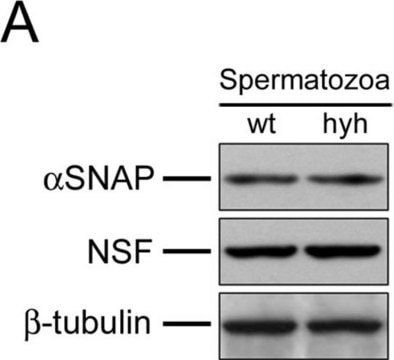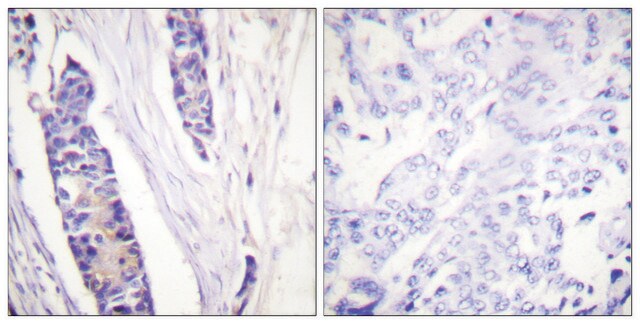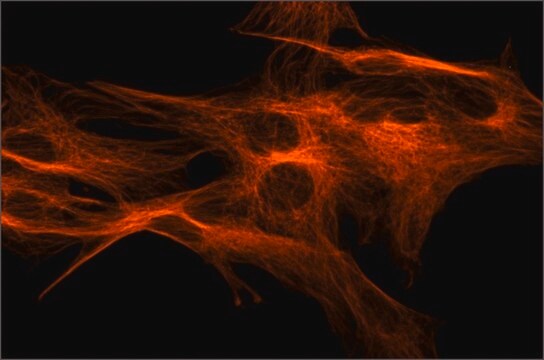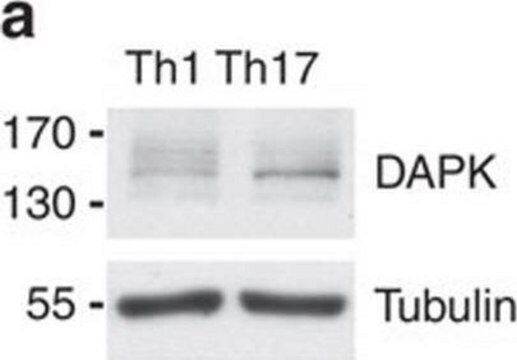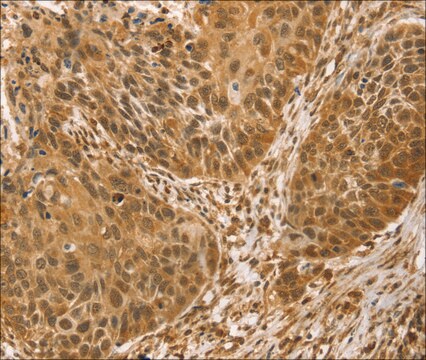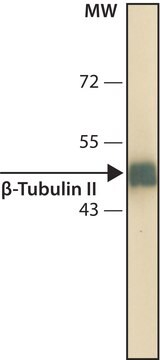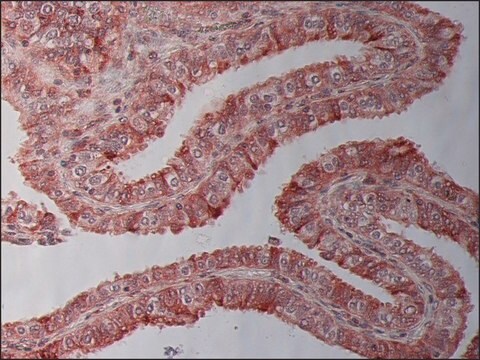T4026
Monoclonal Anti-β-Tubulin antibody produced in mouse

clone TUB 2.1, ascites fluid
Synonym(s):
Monoclonal Anti-β-Tubulin
About This Item
Recommended Products
biological source
mouse
Quality Level
conjugate
unconjugated
antibody form
ascites fluid
antibody product type
primary antibodies
clone
TUB 2.1, monoclonal
mol wt
antigen 55 kDa
contains
15 mM sodium azide
species reactivity
human, rat, frog, moth, mouse, plant, rabbit, chicken, bovine, wheat, sea urchin, hamster
enhanced validation
independent ( Antibodies)
Learn more about Antibody Enhanced Validation
technique(s)
indirect immunofluorescence: 1:200 using cultured chicken fibroblasts
western blot: 1:100 using human or chicken fibroblast cell extract
isotype
IgG1
application(s)
research pathology
shipped in
dry ice
storage temp.
−20°C
target post-translational modification
unmodified
Gene Information
human ... TUBB(203068) , TUBB1(81027) , TUBB1(81027) , TUBB1(81027) , TUBB1(81027) , TUBB2A(7280) , TUBB2A(7280) , TUBB2A(7280) , TUBB2A(7280) , TUBB2C(10383) , TUBB2C(10383) , TUBB2C(10383) , TUBB2C(10383)
mouse ... Tubb1(104068) , Tubb1(104068) , Tubb1(104068) , Tubb1(104068) , Tubb2a(22151) , Tubb2a(22151) , Tubb2a(22151) , Tubb2a(22151) , Tubb2c(227613) , Tubb2c(227613) , Tubb2c(227613) , Tubb2c(227613)
rat ... Tubb2(29212) , Tubb2(29212) , Tubb2(29212) , Tubb2(29212) , Tubb2c(296554) , Tubb2c(296554) , Tubb2c(296554) , Tubb2c(296554)
Looking for similar products? Visit Product Comparison Guide
Related Categories
General description
Monoclonal Anti-b-Tubulin (mouse IgG1 isotype) is derived from the hybridoma TUB 2.1 produced by the fusion of mouse myeloma cells and splenocytes from a mouse immunized with purified rat brain tubulin.
Specificity
Immunogen
Application
- Fluorescence-activated cell sorting (FACS)
- Immunoblotting
- Immunofluorescence Analysis
Biochem/physiol Actions
Physical form
Storage and Stability
Disclaimer
Not finding the right product?
Try our Product Selector Tool.
Storage Class Code
12 - Non Combustible Liquids
WGK
WGK 2
Flash Point(F)
Not applicable
Flash Point(C)
Not applicable
Regulatory Listings
Regulatory Listings are mainly provided for chemical products. Only limited information can be provided here for non-chemical products. No entry means none of the components are listed. It is the user’s obligation to ensure the safe and legal use of the product.
JAN Code
T4026-100UL:
T4026-BULK:
T4026-.2ML:
T4026-VAR:
T4026-.5ML:
Choose from one of the most recent versions:
Certificates of Analysis (COA)
Don't see the Right Version?
If you require a particular version, you can look up a specific certificate by the Lot or Batch number.
Already Own This Product?
Find documentation for the products that you have recently purchased in the Document Library.
Customers Also Viewed
Articles
Microtubules of the eukaryotic cytoskeleton are composed of a heterodimer of α- and β-tubulin. In addition to α-and β-tubulin, several other tubulins have been identified, bringing the number of distinct tubulin classes to seven.
Our team of scientists has experience in all areas of research including Life Science, Material Science, Chemical Synthesis, Chromatography, Analytical and many others.
Contact Technical Service